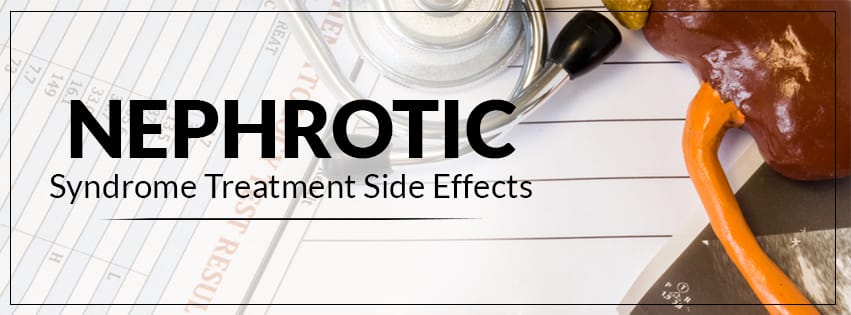What is Nephrotic syndrome?
Nephrotic syndrome causes scarring or harm to the filtering unit of the kidneys (glomeruli). This causes an excess of protein to be lost from the blood into the urine.
Individuals with nephrotic disorder often have:
- Extremely high level of protein in the urine (proteinuria)
- The lower level of protein in the blood (hypoalbuminemia)
- Swelling (edema), particularly around the eyes, feet, and hands
- Higher level of cholesterol
What causes nephrotic syndrome?
Nephrotic disorder results from harm to the kidneys’ glomeruli. These are the tiny veins that filter waste and overabundance of water from the blood and send them to the bladder as urine.
Your glomeruli keep protein in the body. At the point when they are harmed, protein leaks into the urine. Healthy kidneys permit under 1 gram of protein to leak in the urine in a day. In nephrotic syndrome, the glomeruli allow 3 grams or more amount of protein leakage into the urine during a 24-hour period.
The nephrotic syndrome side effects might occur with other medical issues, for example, kidney disease caused by diabetes and immune disorder.
The reason for nephrotic syndrome is usually unknown.
What are the indications of nephrotic syndrome?
- Nephrotic condition is a bunch of side effects. These are the most well-known:
- Hypertension
- Swelling in different parts like ankle, feet and eyes.
- Sudden weight gain with fluid retention and swelling.
- Indications of infection like fever, or an increased white blood cell count
- Swelling and pain are associated with blood clots as the blood becomes thickened.
- Urine that seems foamy from protein loss from the body.
The side effects of the nephrotic syndrome might look like other issues or medical conditions. Always consult with your doctor for the right treatment.
What are the complications of nephrotic syndrome?
Severe complications of nephrotic syndrome leads to kidney failure or end-stage renal disease (ESRD). This requires dialysis. Blood clots and infections are different complications. These occur because of the deficiency of protein in the urine.
Could nephrotic syndrome be prevented?
It is not possible to prevent all the causes of nephrotic syndrome. To prevent harm to the glomeruli:
Ensure your blood pressure is all around controlled.
In case you have diabetes, ensure your sugar is controlled.
Keep yourself updated with vaccines that help to prevent common infections. If you live or work around people who are having hepatitis or other viral infections, then you must have to take care.
Finish all antibiotics as directed by the doctor. Try not to stop your antibiotics since you might be feeling much improved.
Some key points to remember about nephrotic syndrome
Nephrotic syndrome generally develops when there is harm to the filtering unit of the kidneys (glomerulus). This outcome is in protein spilling into the urine (proteinuria).
Loss of proteins from your blood allows the fluid to leak from the blood vessels into the tissue that causes swelling.
The blood inside your veins will turn out to be thick with the loss of fluid into the tissue. This condition increases the possibility of a blood clot.
Your body will attempt to replace the lost proteins by expanding the production through the liver. This can leads to high cholesterol.
You should keep yourself away from the overabundance of sodium and fluid intake to prevent fluid accumulation in the tissue.
Medications are utilized to treat the cause or assist your body with disposing of excess liquid.
Dialysis might be required if kidney failure happens which can occur in extreme cases.
How can Ayurveda cure nephrotic syndrome?
Ayurveda accepts and believes that any disease caused is the result of an imbalance in the doshas and various channels of the body. So, the ayurvedic medication endeavour to treat nephrotic syndrome in the early phase. Along with the medicines, the patients need to take on a cautious way to deal with their dietary patterns. There are different food varieties that can push down your situation, like sour fruits or fruits with seeds. Thus, an appropriate renal diet is recommended during nephrotic syndrome by an ayurvedic expert.
Ayurvedic medicines assist in improving the cells of the kidneys and restore their capacity. The prescriptions additionally will tend to stop the creation of defective cells and tissues and produce new ones. Certain herbs that are utilized in the ayurvedic medicines include:
Punarnava: Punarnava assists with stimulating the output of the blood from the heart. By promoting healthy blood circulation, they permit the kidneys to get blood and thus keep them away from diseases like end-stage renal infection, Glomerulonephritis, and nephrotic syndrome.
Palash: Helps to fight diseases and inflammation in the urinary tract.
Gokshuradi Guggulu: Gokshur is a blend of herbs that assists in improving and restoring the damage to the kidneys.
Kasni: Kasni is a natural herb that gives strength to the capacity of the kidneys at the cellular level.
Trinnpanchmool: For ages, this herb (a blend of the five spices) has been used to treat kidney problems. This herb assists with recovering the better cells so the nephrotic syndrome side effects can be dealt with permanently.

